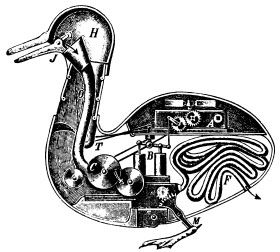Health
On the Biology of Mental Disorders
A major new study questions whether mental disorders are brain disorders.
Posted March 18, 2019

“The notion that mental disorders are genetically encoded brain disorders is everywhere around us,” note several prominent researchers in the latest issue of Behavioral and Brain Sciences. The idea holds such currency that it “dominates the organization of research, it dominates teaching, and it dominates the media,” they conclude in a study that has generated robust debate and refocused attention on the many factors that influence mental health.
The idea that psychiatric conditions have clear neural correlates predates Emil Kraepelin’s classificatory system in the 1900s, but it intensified dramatically in recent decades, argue Denny Borsboom at the University of Amsterdam, Angélique Cramer at Tilburg University, and Annemarie Kalis at Utrecht University, authors of the study. As evidence, they cite Thomas Insel, who as director of the National Institute of Mental Health argued that “mental disorders are biological disorders.” His successor, current director Joshua Gordon, claimed more recently that “psychiatric disorders are disorders of the brain.”
Yet despite widespread acceptance of this argument, the search for the biological basis of mental disorders has not resulted in “conclusive reductionist explanations of psychopathology... We do not have biomarkers that are sufficiently reliable and predictive for diagnostic use.”
The researchers are not alone in highlighting this problem. “Despite decades of work,” David Adam noted in Nature in April 2013, “the genetic, metabolic and cellular signatures of almost all mental syndromes remain largely a mystery.”
According to the authors of the recent study, the assumptions of neuropsychiatry have become so widespread and engrained that they are often simply accepted as fact:
The central problem is dogma: The reductionist hypothesis is not treated as a scientific hypothesis, but as an almost trivial fact. It is not a fact but a hypothesis that mental disorders originate in the brain. It is not a fact but a hypothesis that there are genes “for” mental disorders; and it is not a fact but a hypothesis that finding out “what goes wrong in the brain” is a necessary condition for progress in the science of mental disorders.
One of several respondents to the study, Kathryn Tabb at of Columbia University, wrote that the critique was “convincing,” but the charge of biological reductionism “in 2018, a bit of a straw man.” Apparently, today’s emphasis on biopsychosocial-spiritual dimensions is evenly spread, without preference or bias, leaving the charge of biological reductionism “misdirected.”
Yet as Borsboom and his colleagues point out in a detailed response, while the forum of respondents rejected biological reductionism as a practice and approach, their colleagues in the media continue largely unchallenged to claim that mental disorders are best seen as brain disorders.
The implications of that disconnect are far-reaching and profound: “If it makes sense to understand mental disorders as arising from the causal interplay of symptoms and other factors in a network structure, there may be no reductive biological explanation that awaits discovery. This is because, contrary to quite widely shared current opinion, mental disorders are not brain disorders at all” (emphasis mine).
Commenting in the same forum, the prominent Stanford scientist John Ioannidis observed: “If mental health problems are mostly not brain disorders, the dearth of useful neuroscience-derived biomarkers is only to be expected. There is enormous investment in basic neuroscience research and intensive searches for informative biomarkers of treatment response and toxicity,” he added, yet “the yield is close to nil.”
“To overcome this dead end,” he advises, “we should shift emphasis away from the research paradigm that considers mental health problems to be mostly brain disorders and move towards exploring other, potentially more fruitful paths,” such as environmental factors themselves impacting genes.
“Instead of being reducible to a biological basis,” Borsboom and colleagues conclude, “mental disorders feature biological and psychological factors that are deeply intertwined in feedback loops. This suggests that neither psychological nor biological levels can claim causal or explanatory priority.”
References
Adam D. (2013). Mental health: On the spectrum. [Editorial]. Nature 496:416-18.
Borsboom, D., Cramer, A. O. J., Kalis, A. (2019). Brain disorders? Not really: Why network structures block reductionism in psychopathology research. Behavioral and Brain Sciences, 42(e2), 1-11. doi:10.1017/ S0140525X17002266
Borsboom, D., Cramer, A. O. J., Kalis, A. (2019) Author’s response: Reductionism in retreat. Behavioral and Brain Sciences, 42(e32), 44-63. doi:10.1017/S0140525X18002091
Ioannidis, J. P. A. (2019). Therapy and prevention for mental health: What if mental diseases are mostly not brain disorders? Behavioral and Brain Sciences, 42(e13), 23-24. doi:10.1017/S0140525X1800105X
Tabb , K. Why not be pluralists about explanatory reduction? Behavioral and Brain Sciences, 42(e27), 38-39 doi:10.1017/S0140525X18002054


